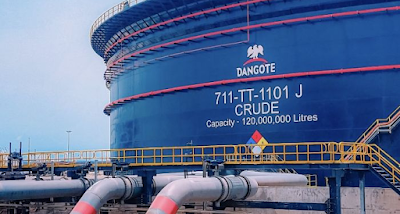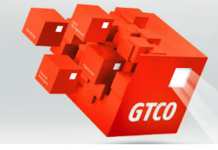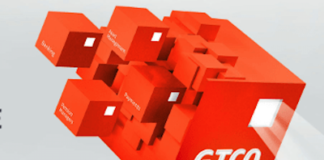Fuel Importers Face N75 Billion Monthly Loss Following Dangote Price Cut
Importers of Premium Motor Spirit (petrol) may incur an average loss of N2.5 billion daily and N75 billion monthly after the recent price reduction announced by the Dangote Petroleum Refinery.
Industry sources indicate that the average landing cost of petrol is significantly higher than the new ex-depot price set by the Dangote refinery. Effective from Wednesday, February 27, Dangote announced a N65 reduction in the ex-depot (gantry) price of petrol, lowering it from the previous rate to a new price per litre.
This marks the second price reduction in the new year and the third within two months. Dangote stated that customers will now be able to purchase high-quality petrol at new prices from its retail partners nationwide, including MRS, Heyden, and Ardova.
According to the company, petrol will be sold at MRS Holdings stations for specified rates depending on the region: in Lagos, [insert price]; in the South-West, [insert price]; in the North, [insert price]; and in the South-South and South-East, [insert price].
Similarly, Ardova Petroleum and Heyden stations will offer the product at rates of [insert price] in Lagos, [insert price] in the South-West, [insert price] in the North, and [insert price] in the South-South and South-East.
The new pricing from Dangote presents a significant challenge for marketers, who may have to sell petrol at prices below their actual costs. The Major Energies Marketers Association of Nigeria reported that the landing cost of petrol as of last week was [insert price] per litre, which is [insert amount] higher than the ex-depot price of PMS at the Dangote refinery.
Recently, the Nigerian Midstream and Downstream Petroleum Regulatory Authority (NMDPRA) indicated that Nigeria’s daily petrol consumption averages around 50 million litres. The NMDPRA noted that more than half of this amount is imported, as local refineries are unable to meet even 50 percent of the demand.
“Following the President’s withdrawal of the subsidy announced on May 29, 2023, we immediately observed a steep decline in consumption. Since then, we’ve been averaging around 50 million litres per day, with domestic refineries contributing less than half of this total. Consequently, the shortfall is being filled by imports,” stated Farouq Ahmed, the Chief Executive of the NMDPRA.
From the regulator’s claims, it can be inferred that importers and depot owners import approximately 25 million liters of Premium Motor Spirit (PMS) daily. Assuming this quantity arrives in Nigeria at a cost of N927 per liter, it would total around N23.18 billion.
With the new pricing from the Dangote refinery, the same volume of PMS would be sold for approximately N20.63 billion, resulting in a daily difference of N2.5 billion. Fuel importers, in discussions with our correspondent following Dangote’s announcement of the price cut, expressed concerns that dealers might have to sell below their cost prices, as consumers are likely to choose the cheaper petrol.
Some importers acknowledged that Dangote’s recent price reductions for petrol and diesel are making importation less appealing. They noted that they have been managing to sell imported products with little to no profit margin due to the need to compete with others in the market.
“One of us who has imported PMS is feeling the impact of Dangote’s decision to reduce prices. While lowering petrol prices is beneficial, it is taking a toll on our business. That’s the simple truth,” stated a dealer who spoke on the condition of anonymity due to the sensitive nature of the matter.
Another retailer indicated that Dangote’s pricing strategy aims to discourage fuel imports, suggesting that many may cease bringing in petroleum products from abroad. “Dangote understands the market competition, and this latest reduction will further discourage fuel imports. There will be losses, as we may also need to lower our prices. Ultimately, some of us will source our products locally. My advice to Dangote is to create a level playing field for everyone,” the retailer remarked.
If dealers are forced to sell PMS at N825 to marketers and retail outlet owners, they could incur losses averaging N2.5 billion daily. This would total N76.5 billion over a month and N918 billion over the course of a year.
Chinedu Ukadike, National Publicity Secretary of the Independent Petroleum Marketers Association of Nigeria, confirmed that importers may face losses due to the new price reduction. He emphasized that this change would significantly impact importers, stressing that Dangote is capitalizing on the advantages of deregulation.
According to claims made by regulators, importers and depot owners bring in roughly 25 million liters of Premium Motor Spirit (PMS) each day. If these 25 million liters arrive in Nigeria at N927 per liter, this would result in an estimated cost of around N23.18 billion.
With the new pricing, the Dangote refinery would sell the same quantity of PMS for approximately N20.63 billion, creating a daily difference of N2.5 billion. Following Dangote’s announcement of the price cut, fuel importers expressed concerns that dealers might be forced to sell below their cost prices as consumers will likely choose the cheaper options.
Some importers noted that Dangote’s recent price reductions are making it increasingly unappealing to import fuel. They mentioned that they have been struggling to sell imported products with little to no profit margin, due to intense competition in the market.
A dealer, who spoke to our correspondent on the condition of anonymity due to the sensitive nature of the issue, shared, “Those of us who have imported PMS are feeling the impact of Dangote’s decision to lower prices. While reducing petrol prices is positive, it is negatively affecting our businesses. That’s the reality.”
Another retailer pointed out that Dangote’s price cuts are aimed at discouraging fuel imports, suggesting that many importers may have to cease operations. “Dangote understands the competitive landscape, and this latest reduction will further deter fuel imports. There will be losses, and we may need to reduce our prices as well. Ultimately, some of us might have to source our products locally. I would advise Dangote to ensure a level playing field for all stakeholders,” the retailer stated.
If dealers are forced by current market conditions to sell PMS at N825 to marketers and retail outlet owners, they would incur an average daily loss of N2.5 billion. Over a month, this would result in losses totaling N76.5 billion, and if this trend continues for a year, it would amount to N918 billion.
Chinedu Ukadike, the National Publicity Secretary of the Independent Petroleum Marketers Association of Nigeria, confirmed that importers might face losses due to the recent price cuts. Ukadike emphasized that this price reduction would adversely impact importers, stating that Dangote is effectively leveraging the advantages of deregulation. “Dangote may ‘kill’ fuel importers with this ongoing price reduction. All those importers who have claimed they can bring in cheaper fuel are now facing a tough reality.”
At the seashore, Ukadike expressed his personal opinion, stating, “Dangote will reduce the price, and they will run into trouble.”
Marketers have voiced their concerns as well. Hammed Fashola, the National Vice President of IPMAN, acknowledged that while marketers are pleased with the new prices, the reduction impacts their businesses. He explained that both importers and filling stations with existing stock will incur losses due to the price drop.
“As independent marketers, we are happy that the Dangote refinery has reduced the price again. This is beneficial for us and good for business, as it eases financial burdens. We now have more flexibility to operate. However, there is a downside; sudden price changes come with costs.”
Fashola noted, “Some of us have just purchased products from MRS or other sources, and suddenly, prices are reduced. This results in significant losses for everyone, depending on individual stock volumes. Importers may face larger losses, while marketers with more pressure may also be affected disproportionately. Everyone is feeling the impact, but the positive aspect is that consumers are satisfied. We should not be greedy; we must accept these challenges. This is the essence of deregulation, allowing more players such as importers and local refiners into the market. Now, we can witness the changes.”
He recalled questioning why an imported product could be cheaper than a locally refined one. “Things are becoming clearer now. Personally, I am pleased with the current developments. I believe we will progress toward a stage where prices will stabilize, enabling us to operate a consistent pricing model for two to three months. Once we reach that level, business will improve for everyone,” Fashola concluded.
Professor Adeola Adenikinju, an Economics professor at the University of Ibadan, stated that importers will have to absorb their losses, emphasizing that this is a competitive market. He also noted that Dangote and other refineries in the country should be capable of meeting local demand without relying on imports.
“Dangote may effectively ‘kill’ fuel importers with these continual price cuts. All those importers who have challenged Dangote by claiming they want to import cheaper fuel are nearing a difficult situation.” Read More















